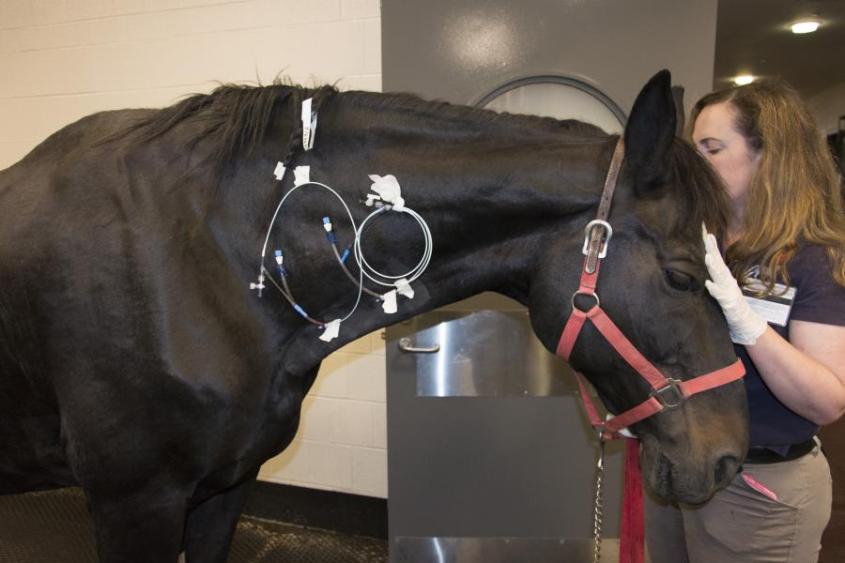Emergency and Critical Care
The Emergency and Critical Care Service at Cornell's Equine Hospital provides medical and surgical treatment to severely injured or ill animals 24 hours a day, 365 days a year. We are the only veterinary emergency service in a 200-mile radius run by board-certified veterinary emergency and critical care specialists. We work closely with local veterinarians from across the region to make sure your animal gets the best care possible before, during and after hospitalization.
We offer the most advanced medical and surgical treatments to stabilize your animal and diagnose its condition, and we collaborate with a team of expert veterinary specialists in anesthesiology, cardiology, radiology, internal medicine, surgery, neurosurgery, ophthalmology, and dentistry to ensure your animal receives the most comprehensive care available.



